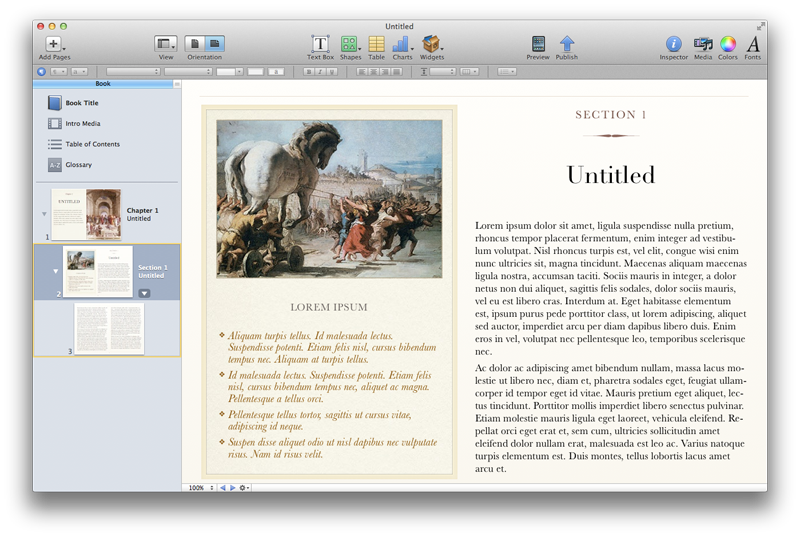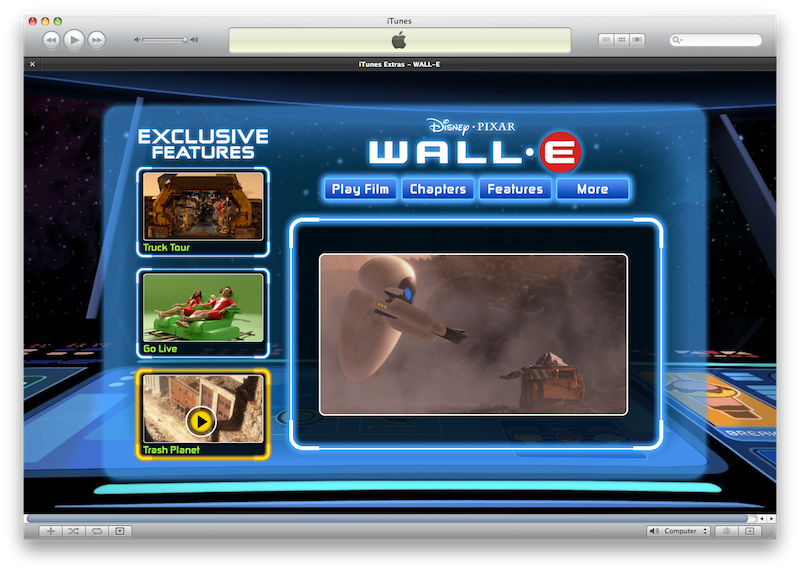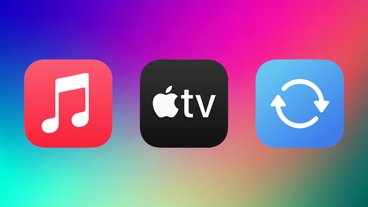Inside Apple's efforts to expand iPad content with iBooks Author
Unlocking iPad for more content developers
With iBooks Author, Apple is attempting to do for ebooks what it previously did with music for iPods and mobile software for the iPhone: create a functional market for compelling digital content to drive iPad sales.
iPad already has compelling content in the form of more than 140,000 apps specifically optimized for it. However, creating these apps requires specialized Cocoa programming skills. iBooks Author enables non-programmers to create dynamic content for iPad without any software development experience.
Developers prefer native apps
In 2007, Apple's developers were not impressed when the company unveiled its initial web apps strategy for third party development. Programmers knew they could achieve a lot more by writing native Cocoa apps, just as Apple had.
Apple subsequently announced it would make native iOS apps possible early the next year with an iPhone SDK, paired with the new App Store to help developers market them. That SDK allowed Mac programmers to use the Xcode development tools they were already familiar with to create new iOS apps.
The other advantage to native apps over web apps is that Apple only sells native apps within its App Store. That gives them an edge in marketing, discoverability and profitability. While web apps should be able to run on any mobile device, they lack a good business model and are harder to monetize.
Apple likes web standards
For a number of reasons, Apple prefers using web standards to Cocoa in some situations, ranging from Dashboard widgets to iAd content to iTunes Extras (below) to the iTunes Store presentation itself.
One reason is simplicity, another is security. It's much easier to keep Dashboard widgets or iAds from introducing potential security vulnerabilities if they're implemented using web standards and contained in a web sandbox.
However, Apple has never delivered any easy to use tools for creating iOS widgets or other content based on web technologies. The company has created technical instructions that explain how experienced web developers can develop content for iTunes Extras and iTunes LP, which are aimed at Apple TV and can be sold through iTunes.
The company has also delivered Dashcode for Mac OS X, which enables web developers to create widgets built from HTML, CSS and JavaScript that users can install in the Dashboard layer of Mac OS X, but hasn't offered any way to transfer these functional mini-apps to iOS, outside of embedding them inside of a native app using Xcode.
iBooks as web content
When Apple decided to how to design iBooks, it similarly decided to back EPUB, an open, web-based format that is essentially a self contained website. EPUB titles are created using HTML, CSS and JavaScript just like Dashboard widgets, iAds, iTunes Extras or general purpose web apps.
Push Pop Press, founded by two Apple engineers, went the opposite route, aiming to deliver dynamic ebooks implemented as native iOS apps. This enabled the company to craft far more sophisticated multitouch titles than the relatively plain ebooks one could create for iBooks 1.x, which implemented EPUB 2.0.
The company abruptly left the ebooks market after being acquired by Facebook last fall, with rumors first suggesting the company feared patent litigation from Apple. Push Pop cofounder Kimon Tsinteris subsequently told AppleInsider that the rumor was "factually inaccurate" and noted that Apple had awarded Push Pop Press an Apple Design Award.
Commentator John Gruber reported he had heard from a "well-informed little birdie" that Steve Jobs had "more or less warned Push Pop Press that Apple was going in the same direction," similar to a warning Jobs gave Panic developers after they expressed an idea for building a digital photo management program prior to the release of iPhoto.
"Yeah. Don't do that one," Jobs reportedly told them.
Push Pop Press developers haven't clarified whether they abandoned the idea of 'ebooks as apps' due to direct competition from Apple that they had somehow failed to anticipate, or if they decided that native apps were the wrong way to deliver ebooks, or if they failed to find much interest among conventional publishers, or if they simply found a more interesting role at Facebook.
iBooks Author's narrow target
Whatever the reason for Push Pop Press' abrupt departure from the market, Apple's own entry into ebooks with iBooks Author and iBooks 2 does not broadly seek to cover the needs of all publishers. Instead, it only targets textbooks, and initially those aimed at primary schools. Other ebook publishers, notably Amazon, have far wider aspirations.
While distantly behind Amazon in ebooks, Apple's advantage is tied to iPad, which is quickly being adopted by schools as a low cost, high value personal computer that children readily relate to. Amazon hasn't made much progress in pushing its Kindle readers into schools, and its mainstream models are targeted towards novel readers, not textbook-sized interactive tablets that can support 3D models and multitouch navigation.
With its natural advantage in education, Apple is attempting to induce the production of new dynamic content that will help sell iPads. Rather than expecting publishers to embrace Xcode development and produce digital textbooks as native iPad apps, the company has produced a tool that makes generating dynamic iBooks as easy as laying out Keynote presentations.
That's not necessarily giving Apple the best start, and segment two indicates: Initial iBook 2 titles offer disappointing interactivity
 Daniel Eran Dilger
Daniel Eran Dilger












 Mike Wuerthele
Mike Wuerthele

 Malcolm Owen
Malcolm Owen
 Chip Loder
Chip Loder

 William Gallagher
William Gallagher
 Christine McKee
Christine McKee
 Michael Stroup
Michael Stroup








6 Comments
Do iBooks 2 and iBooks Author support ePub?
Do iBooks 2 and iBooks Author support ePub?
ibooks 2 yes. ibooks author, sort of. they are wrapped in the ibooks container so they wouldn't work in just any ebook reader.
oh and a little correction to the article. it implies that iTunes extras and lp work on the iPad. they don't. they only work on the computer. which I think is baffling. it should be possible to update the player apps to support them given that they are based off web standards.
iBooks Author allows you to customize the templates for other forms of books other than textbooks. It seems to be a pretty versatile authoring tool for creating books to be sold through ibooks....
It also exports PDF documents. So you do have another way out other than epub married to ibooks alone.
iBooks Author's narrow target
Whatever the reason for Push Pop Press' abrupt departure from the market, Apple's own entry into ebooks with iBooks Author and iBooks 2 does not broadly seek to cover the needs of all publishers
I was answering the above quote..... iBooks Author has a lot of potential for all kinds of publications...
Do iBooks 2 and iBooks Author support ePub?
Not iBooks Author; no export, no import. Pages does export of ePub. Not sure if you can export iba files to Pages.
iBooks 2 plays ePub files and some ePub3 files.